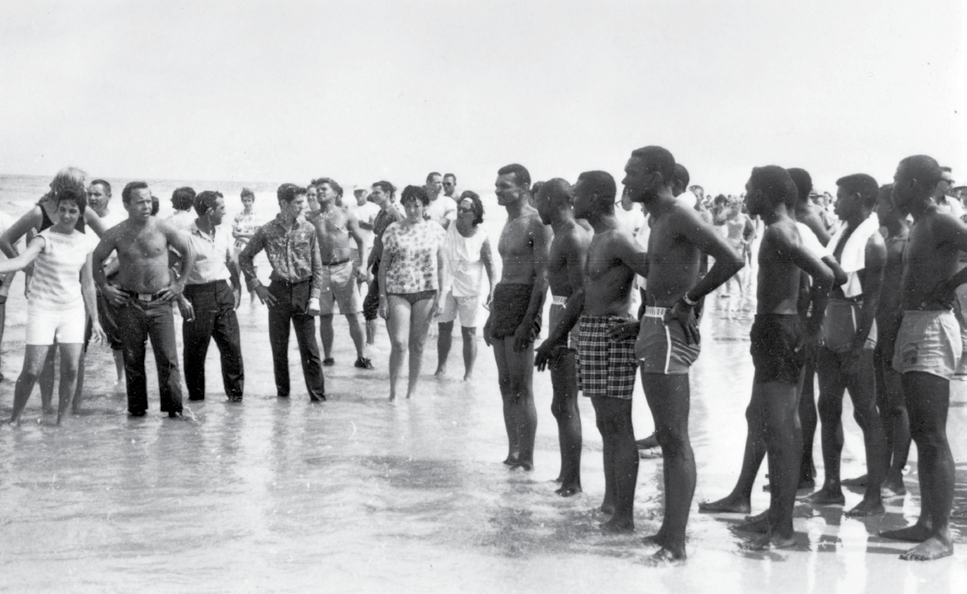From left to right: Governor Kirk confronted H. Rap Brown, black power agitator, at a Negro rally in Jacksonville; Florida State University students marching for anti-war protest; Astronaut Buzz Aldrin’s faceplate
reflecting Neil Armstrong on the moon; a young Cuban refugee holding her dolls; Miami-Dade Junior College student attending peace rally
Civil Rights was perhaps the most important domestic issue of the 1960s.
In the South, segregation by race was not just a matter of custom; it was state law. African-Americans could not use the same facilities as white people. They could not eat in restaurants, stay in hotels or motels, swim at public beaches, or attend the same schools as white people.
African-Americans could not get a drink of water from a public fountain or use the rest rooms in public facilities. Although they could shop in the local stores, African-Americans could not sit at the lunch counter. Educational and job opportunities were restricted on the basis of race. State and local police forces, as well as the courts enforced these laws, sometimes harshly.

Segregationists and black demonstrators at a "white-only" beach in Saint Augustine
This landmark legislation outlawed segregation in United States schools and public places. First conceived to help African-Americans, the bill was amended prior to passage to also protect women.

